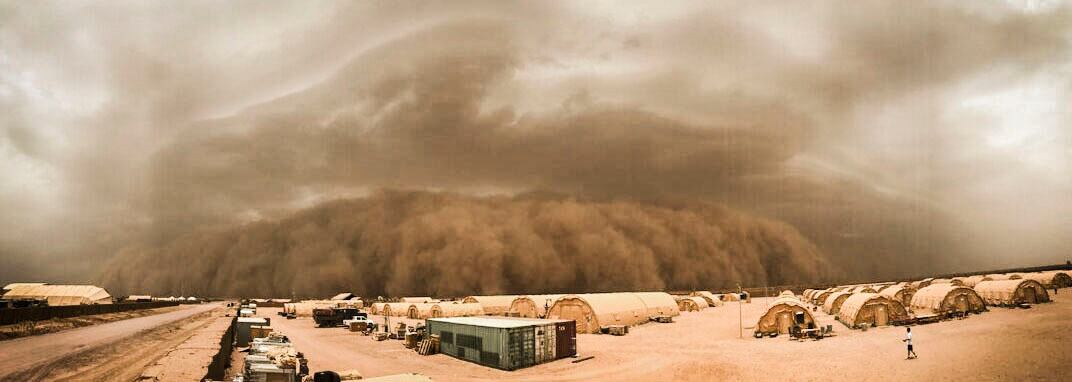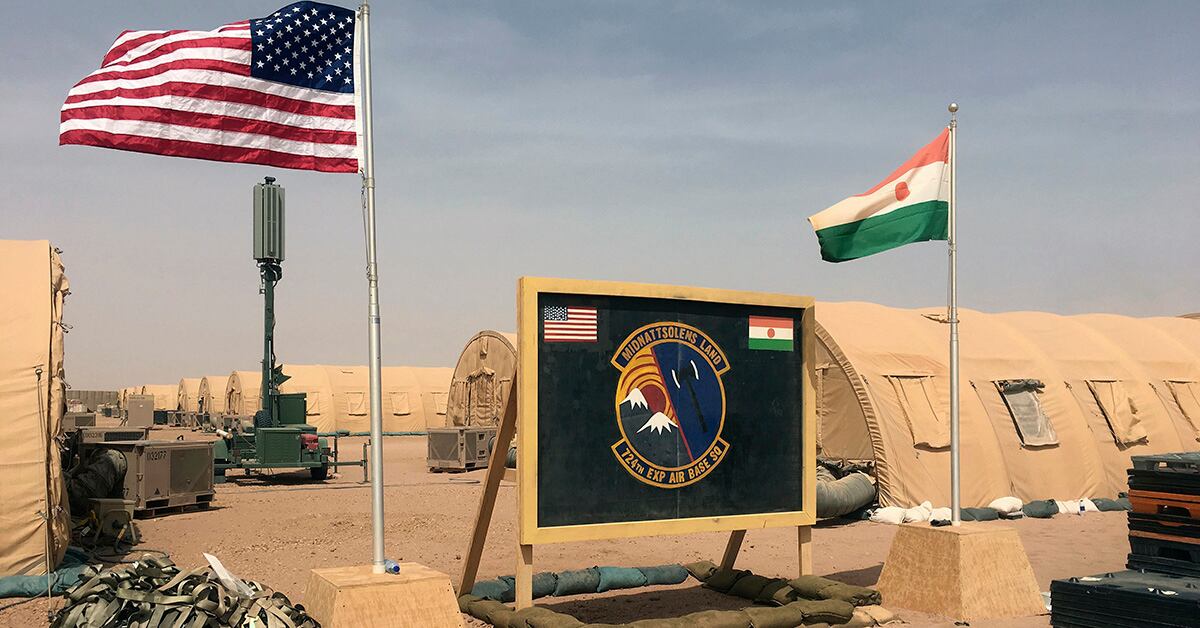Construction at the Air Force’s Nigerien Air Base 201 might have violated federal law and skirted security standards, resulting in increased risks for troops operating at the remote outpost, according to a new report released by the Pentagon’s inspector general.
The $100 million air hub is located in the Agadez region of Niger. It was designed for use by C-17 cargo aircraft and armed drones that previously operated out of Niger’s capital, Niamey. But completion of the airfield and base camp was delayed by almost three years and plagued by mismanagement, according to the DoD IG report.
Thorough site surveys were not performed early on, causing resourcing problems. And the air base was not designed in accordance with Defense Department safety and security requirements, the report stated, citing problems with the aircraft rescue and firefighting station, base perimeter fence and airfield lighting.
“A few procedural missteps occurred in an effort to build a functional air base in a very remote area under very austere conditions,” said U.S. Africa Command spokesman Air Force Col. Chris Karns in an email. “The construction of Nigerien Air Base 201 provides a valued capability to address and monitor the deteriorating security situation in the Sahel.”
The DoD IG report called for a review and potential investigation into why the Air Force might have violated a federal law known as the Antideficiency Act by purchasing 12 guard towers costing roughly $3.7 million using procurement funds instead of military construction funds. Procurement funds are used to finance equipment, while the military construction budget is designed to pay for property construction and requires congressional notification.

The Air Force also bypassed Congress when it split the construction requirement for intelligence, surveillance, and reconnaissance operations into six operations and maintenance projects adding up to $5.4 million. Air Force officials told the DoD IG this was done to meet an urgent timeline.
“However, all of the projects were known and each project on its own would not result in a ‘complete and useable facility,’ which means the projects should have been combined and reported to Congress,” the DoD IG wrote.
Karns maintained that no laws were broken during the construction process, and though some “mistakes were made," procedures will be “tightened up."
There was also an urgent need to build the air base, Karns said, citing the growth of Islamic extremism in the region. Four U.S. troops were also killed during an ambush by ISIS-linked militants in Niger nearly three years ago.
Not all the construction at Air Base 201 was completed before operations began. The Air Force approved temporary waivers in June 2019 to allow drone operations at the facility, which “increases the safety risk for personnel” there, DoD IG officials wrote.
The Air Force accepted a base perimeter fence constructed by a contractor even though the infrastructure did not meet the combatant command’s antiterrorism standards in Africa, the report said, but the paragraphs elaborating on those problems and whether they have been corrected or granted a waiver were redacted in the public report.
The 724th Expeditionary Air Base Squadron commander at Air Base 201 and the military construction program manager did not have the authority to accept that risk. They also never asked AFRICOM for a waiver, meaning the command was "not fully aware of the security risks at Air Base 201,” the report reads.
The firefighting facility at the base was also not strategically placed so airmen could meet emergency response times for the entire air base. And solar lighting purchased for the airfield is also not well-suited for uninterrupted visual airfield lights, because Niger experiences sand storms and a heavy rainy season that will impede solar panel charging.

Some of these issues arose after Air Base 201′s classification was changed in September 2015 from a temporarily “contingency location” to a cooperative security location, meaning it is planned to be an enduring base lasting up to a decade.
As a result of these problems, the airfield and base camp needed to support the the drone mission there was delayed by almost three years, finally finishing in spring 2019.
“In addition, the problems that we identified relating to the aircraft rescue and firefighting facility, [REDACTED], and airfield lights could lead to increased risk in safety and security,” the report reads. “Furthermore, the construction of the infrastructure necessary to support the ISR mission, such as munitions storage and handling areas, has not been completed.”
Though waivers were granted, operating without that infrastructure increases the safety risk for troops assigned to Air Base 201, DoD IG officials wrote.
AFRICOM and the Air Force pushed back against the report, citing challenges to building in the Sahara Desert and the changing operational requirements throughout the construction project. AFRICOM submitted multiple requests for a contingency construction authority in Niger beginning in 2013 to assist the process, according to Karns.
“We acknowledge the immense work and efforts put forth by AFRICOM and the Air Force," DoD IG officials wrote in the report. "However, the circumstances did not negate the Air Force’s responsibility to ensure that construction projects were programmed in accordance with appropriation laws and regulations; construction, operations, and security standards were adhered to; and the appropriate waivers were coordinated and approved.”
Kyle Rempfer was an editor and reporter who has covered combat operations, criminal cases, foreign military assistance and training accidents. Before entering journalism, Kyle served in U.S. Air Force Special Tactics and deployed in 2014 to Paktika Province, Afghanistan, and Baghdad, Iraq.




